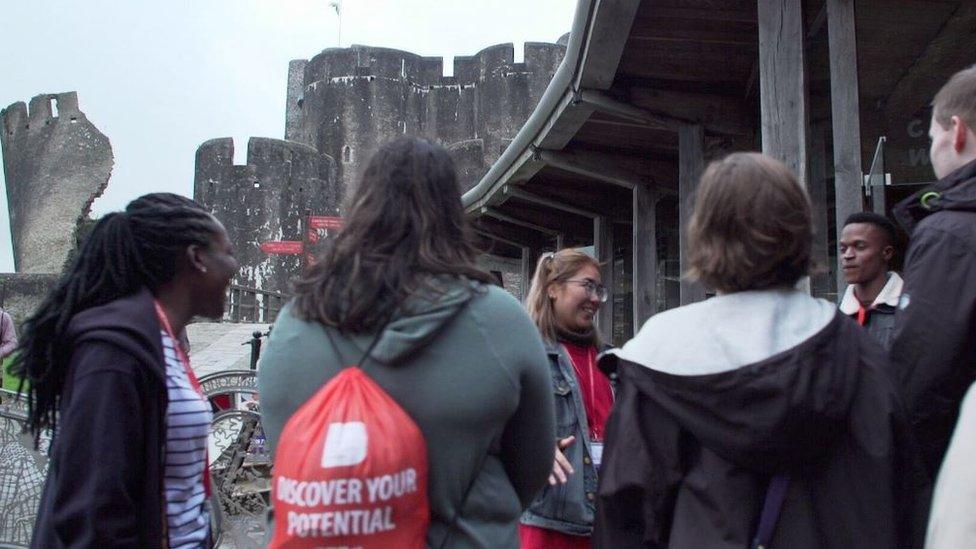Coronavirus: Cardiff medical students on the NHS front line
- Published
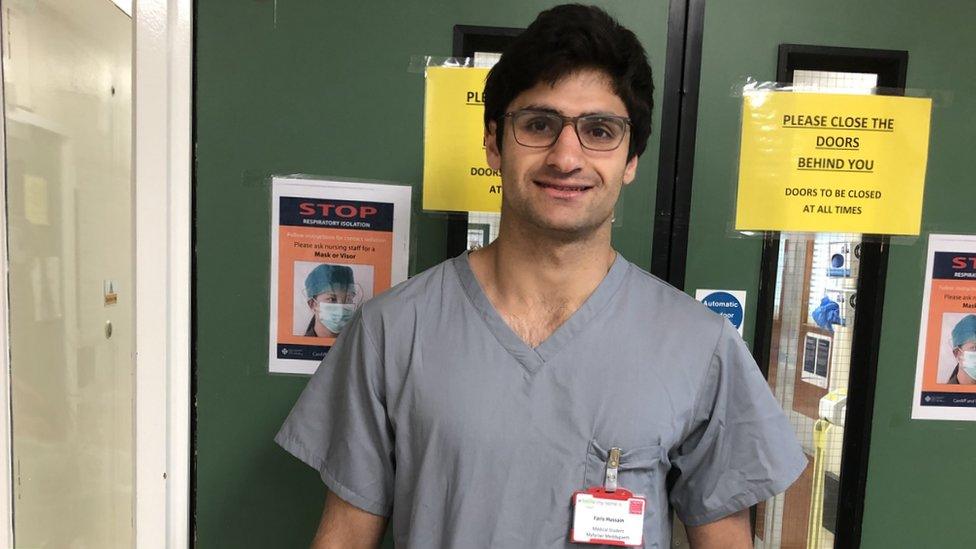
Faris Hussain said he wanted to do what he could to help the NHS during the crisis
When Faris Hussain returned to Wales from Egypt, he had no idea that within a few weeks he would be on the front line of the fight against a pandemic.
The 24-year-old had just finished a placement abroad when the coronavirus lockdown began in March.
Now the final-year medical student is working on wards treating people with Covid-19 at the University Hospital of Wales in Cardiff.
"I was always very keen to do my part," he said.
In March, the Welsh Government announced that final-year medical students, nurses and midwives would be given paid roles in the Welsh NHS during the outbreak.
Faris, from Caldicot, Monmouthshire, is one of 240 Cardiff University students who have opted to do placements in Welsh hospitals.
He would have been using the time before graduation to shadow a junior doctor, but instead he was asked if he could start work at Wales' largest hospital for a five week placement.
Faris is working 12-hour shifts on Covid-19 wards and is due to start working in the intensive care unit this week.
But he said working with the team had left him feeling optimistic.
"We'll always have spirited and great healthcare professionals who will be willing to look after people no matter the risk to themselves," he said.
Coronavirus: Cardiff medical students facing virus on front line
Eli Wyatt moved miles away from her family in Monmouthshire to work and live on site at Ysbyty Glan Clwyd in Denbighshire, where she is treating coronavirus and stroke patients.
The 23-year-old Cardiff student said her family were worried about her, but she knew when the time came she would want to help.
"To be able to help when I know that I've got the ability is a big privilege," she said.
"I've always loved being part of a team… so being part of the wider team of the NHS at this point while we're dealing with this crisis feels kind of empowering."
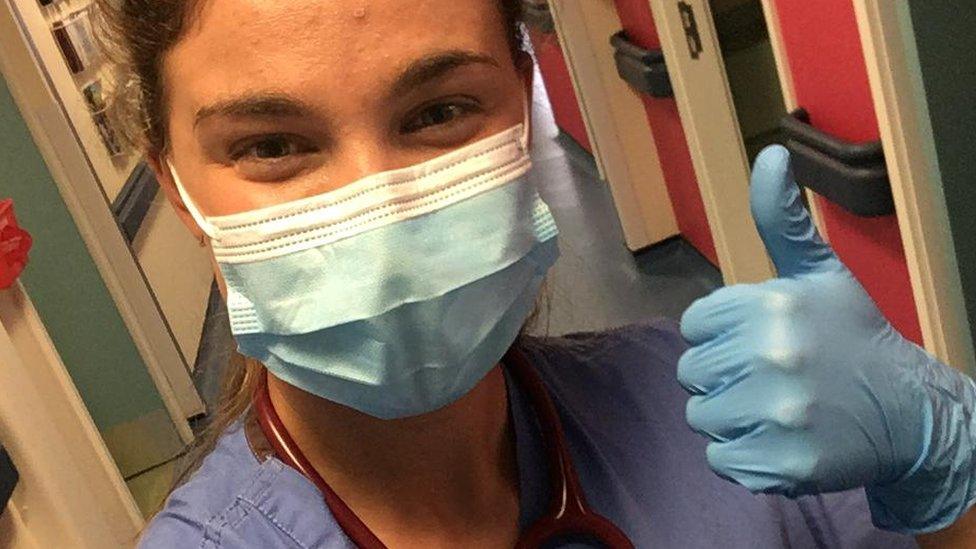
Eli said her family had been worried about her, but knew she would volunteer
Eli said there had been some "demoralising" days treating patients who would not survive, and it had been a steep learning curve.
"It's a really tough thing for people to go through, especially in this environment, because a lot of the time they're going through it on their own without their families," she said.
The final-year students will graduate early, and are being paid, but placements are optional.
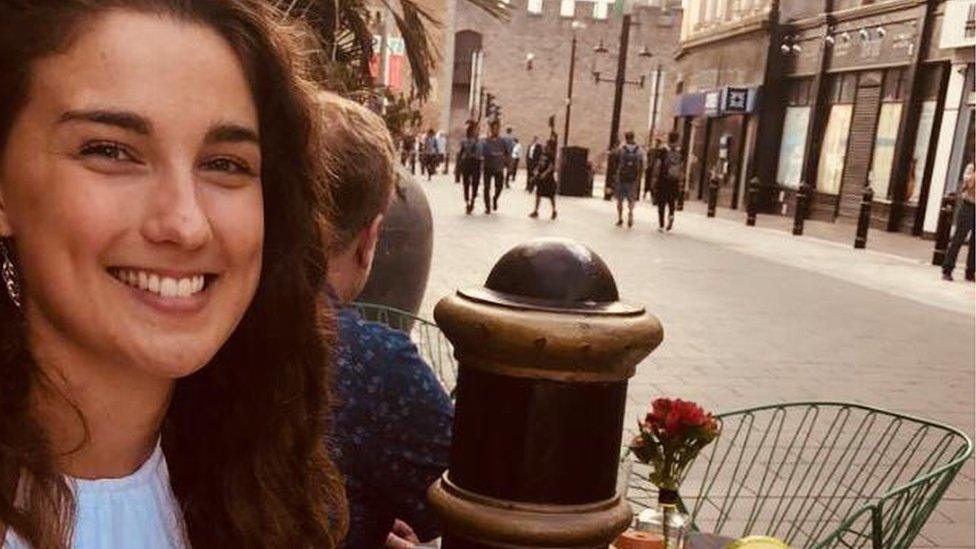
Eli during brighter times before the restrictions came in
Some students have opted out of placements because either they or their family members are classed as high risk, while some are self-isolating.
Rhian Goodfellow, who runs the undergraduate medicine programme at Cardiff University, said it was "humbling" that so many students had offered to help.
"We're all phenomenally proud of them, the way that they all stepped up in such a selfless way when things weren't going right," she said.
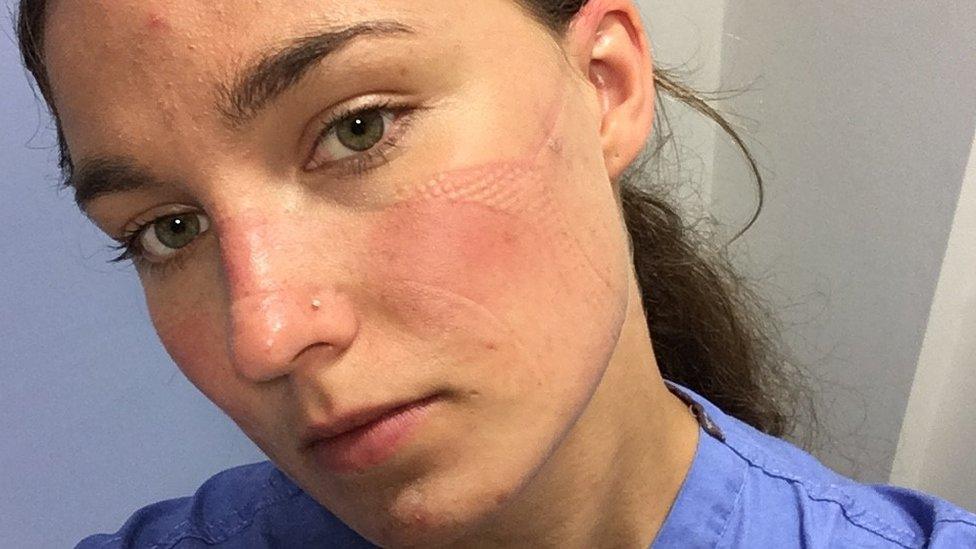
After working a shift, Eli shows the marks left by her personal protective equipment
Another 800 students from other year groups at the university's medical school have signed up to a volunteer bank, meaning they could be called upon to help if there is a second wave of the virus.
While the students have been given training in wearing personal protective equipment and moving patients while on ventilators, Dr Goodfellow said it would be a challenging time for the students.
"Students are seeing so many people dying, despite everybody's best efforts… it's something that's very difficult to witness," she said.
"It's something that you've got to really think about. Even for professionals that have been doing it for many, many years. It's something that's very difficult for all of us."
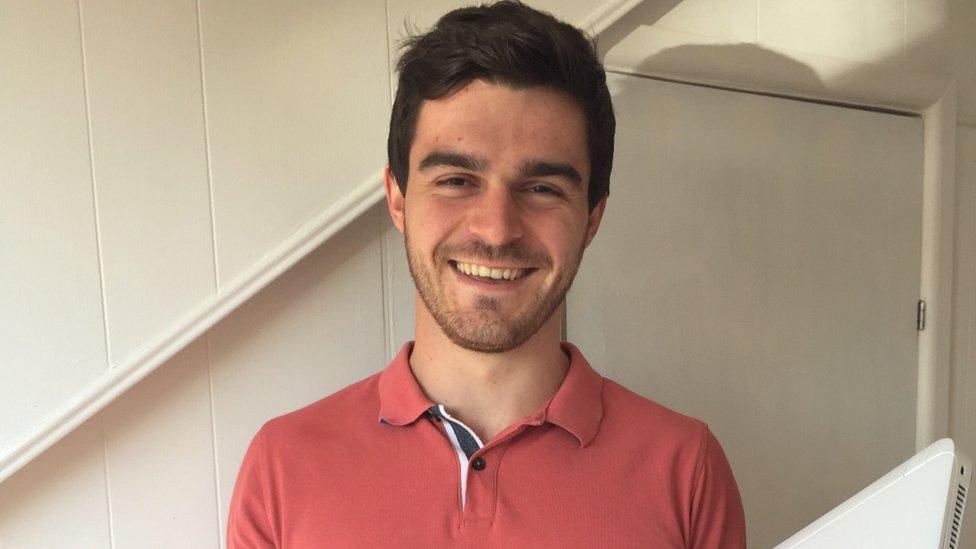
Tom said he was proud to see fellow students working on the front line against the virus
Away from the front line, some medical students are helping prepare others to treat those with coronavirus.
Tom Beresford, 23, from Swansea, is helping to develop online training resources for healthcare professionals in Wales on top of his studies.
He has already produced e-learning material on resuscitation and protective equipment that has been used by health boards across Wales.
Tom is not getting paid for his work, and while he has been granted extensions for his university work, he said the change had been dramatic.
"Overnight we went from working on assessments to working on guidance that's going to be put into practice by staff who are actively fighting the virus," he said.
He said seeing his fellow students working on the front line voluntarily was a "testament to the type of people they are".
"I'm immensely proud of them," he said.
- Published23 April 2020
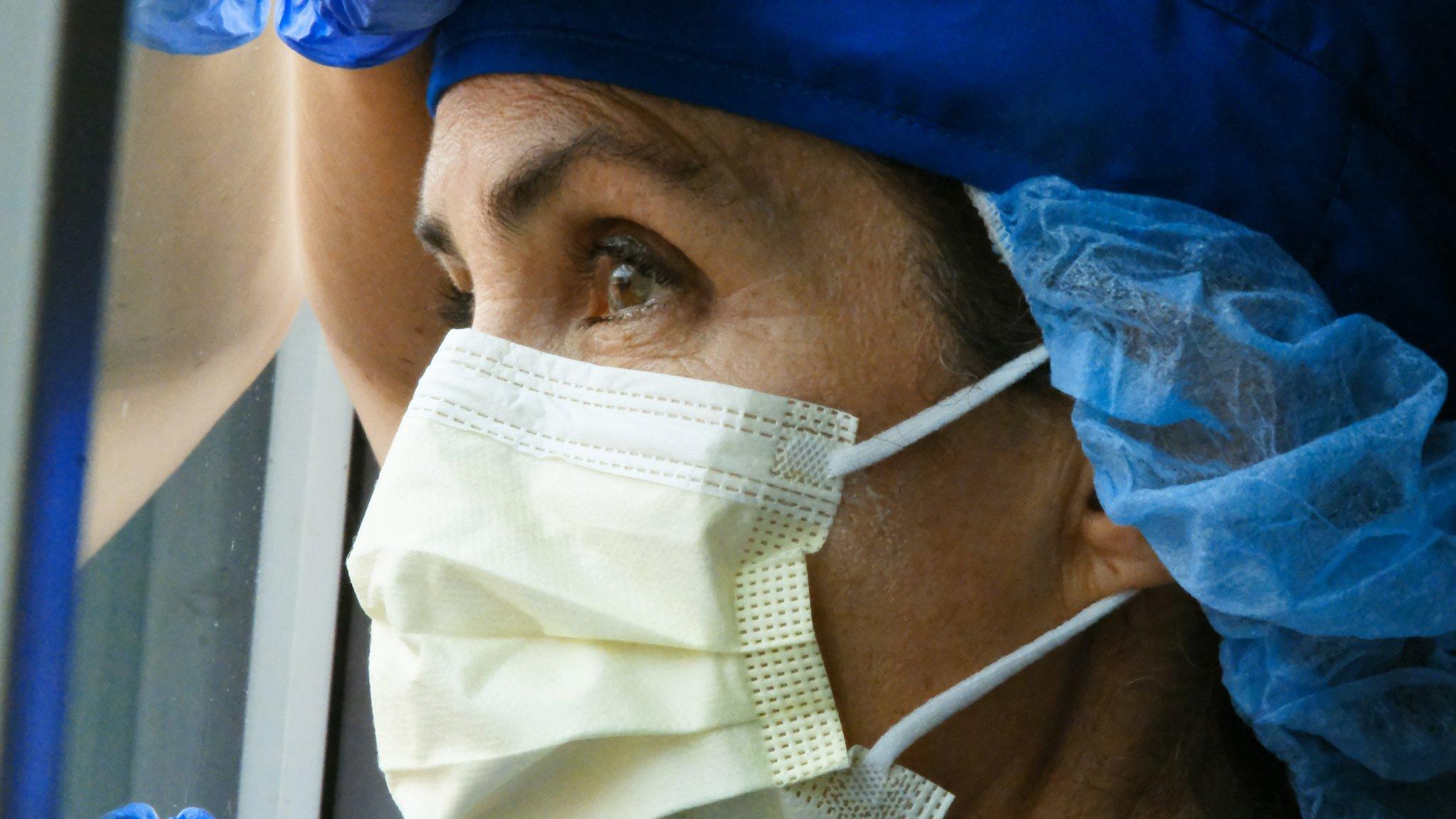
- Published21 March 2020
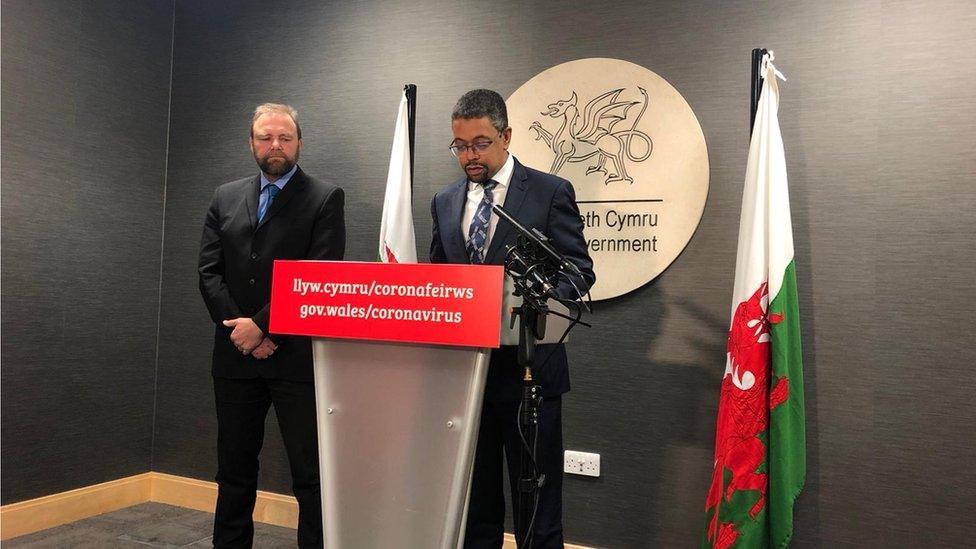
- Published17 September 2019
